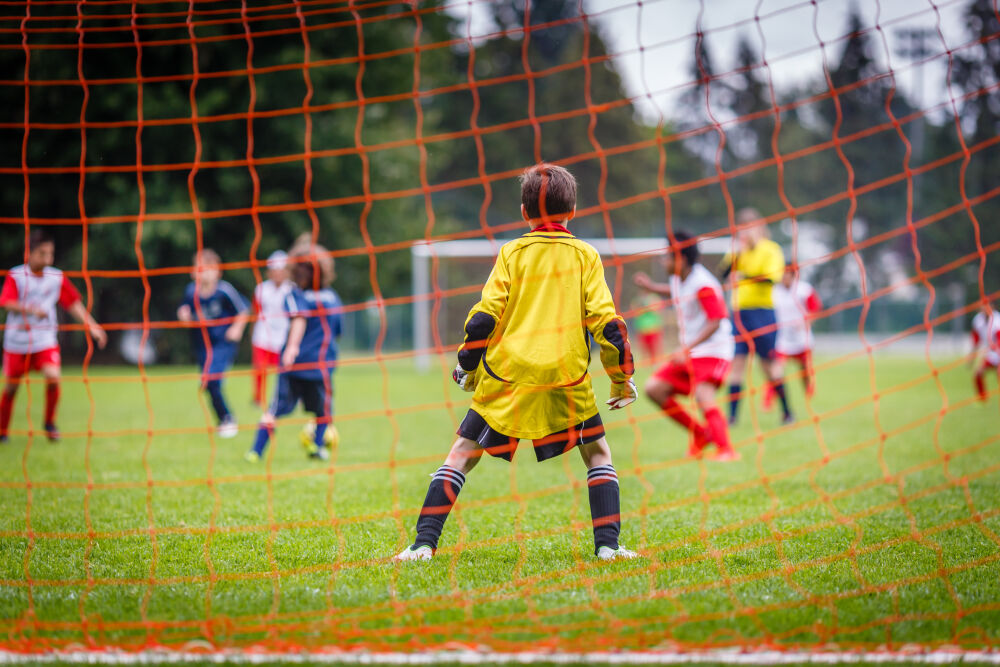Which Sport to Choose for Kids? Tips for Boys and Girls

Regular physical activity is crucial for the healthy development and happiness of children. It not only helps them develop good habits for life but also allows them to burn off excess energy, have fun, and spend their time meaningfully. If you’re unsure which sport to introduce to your kids or enroll them in, we’ve got you covered.
Why Is It Important for Kids to Do Sports?
Regular physical activity is essential for kids for many reasons. Here are the key benefits:
- Physical Development: Sports help children build strength, endurance, flexibility, and coordination. Regular activity reduces the risk of obesity and lifestyle diseases such as diabetes or cardiovascular problems.
- Mental Development: Physical activity releases endorphins, which improve mood and reduce symptoms of anxiety or depression. Achieving success in sports boosts self-confidence, self-esteem, and motivation in life.
- Social Skills: Sports enhance teamwork, communication, and conflict resolution skills. They also provide many opportunities for making friends and building social connections.
- Healthy Habits: Children learn the importance of discipline, perseverance, and training to achieve goals. Sports habits can lead to a lifelong preference for a healthy lifestyle and reduce future health risks.
Sports and physical activity are a great foundation for life that children can build on later. Even if they don’t realize its importance now, parents can guide them successfully.
When Should Kids Start Sports?
Each child is unique, and universal recommendations are not possible. Consider their level of physical and mental development, as well as their interest and motivation. Here are some general guidelines based on age:
- Young Children (up to about 4 years old): For very young children, focus on activities that develop basic motor skills, such as running, jumping, throwing, and catching. Introduce sports through playful activities like obstacle courses or ball games to improve motor skills and coordination.
- Preschool Age (4-6 years): At this age, kids can start with organized sports like soccer, swimming, or gymnastics. While they can grasp basic rules, the focus should remain on fun and developing skills, not competition.
- Elementary School (from 6 years old): At this stage, children can start specific sports, training routines, and low-level competitions. They can develop skills such as teamwork, discipline, and perseverance.
Gradually introduce sports according to the child’s age. As parents, decide whether your child is ready to advance to a higher level of activity. Most importantly, ensure that the activity is enjoyable for them.

Factors to Consider When Choosing a Sport
To determine which sport is suitable for your child, consider these factors:
- Child’s Interests: Observe what they enjoy. Do they prefer ball games, running, dancing, or acrobatics?
- Skill Level: Choose a sport appropriate to their age and physical/mental capabilities.
- Individual vs. Team Sports: Decide if your child is more independent and leans towards individual sports or enjoys team cooperation and group activities.
- Accessibility: Check the availability of the sport in your area. Look for clubs or facilities nearby.
- Budget: Consider your financial capacity, as some sports require expensive equipment or training fees. Choose a sport you can support long-term.
Sports Suitable for Kids
While sports are often categorized by gender, it’s important not to enforce stereotypes. Kids should freely choose what they enjoy and excel at.
Sports for Boys
- Soccer: A popular and widely accessible team sport that promotes teamwork, endurance, and coordination. It enhances agility, speed, and reflexes.
- Hockey: Similar to soccer, hockey focuses on teamwork and communication. It’s a contact sport requiring strength, endurance, and quick reflexes.
- Tennis: An individual racket sport that can also be played in pairs. It improves reaction time, precision, and technical skills while building mental resilience.
- Martial Arts: Disciplines like karate, judo, or wrestling enhance physical fitness, strength, and flexibility while teaching discipline and self-control.
Sports for Girls
- Dance: A creative sport that builds coordination, flexibility, and endurance while fostering social connections and confidence.
- Gymnastics: Ideal for developing flexibility, strength, balance, and motor skills. It’s a solid foundation for many other sports and can start at a young age.
- Volleyball: A popular team sport that encourages collaboration, coordination, and social bonding.
- Equestrian Sports: Riding builds balance, coordination, and a bond with animals, despite being perceived as a risky sport.
Sports for Everyone
- Cycling: Suitable for all ages, cycling develops balance, coordination, and endurance. It’s an excellent family activity that promotes outdoor fun.
- Swimming: A fundamental skill that enhances overall fitness and is gentle on joints.
- Athletics: Activities like running or jumping improve speed, strength, and endurance.
- Hiking: Perfect for nature lovers, hiking fosters endurance and appreciation for the outdoors.
How to Motivate Kids for Sports
To make sports enjoyable and maintain their long-term interest, motivation is key. Here’s how parents can help:
- Focus on Fun: Ensure sports are fun, not a chore or competition.
- Set Realistic Goals: Avoid pressuring kids with overly ambitious targets. Small, achievable goals are more effective.
- Positive Environment: Create a supportive atmosphere and celebrate even small successes.
- Lead by Example: Be an inspiration by engaging in sports yourself.
- Offer Choices: Let kids choose their activities freely. Avoid forcing them into anything they dislike.
Every Child is Unique
Remember that each child progresses at their own pace. Avoid comparisons and give them freedom in choosing their sport. A positive and playful approach will keep them motivated and help them grow.





